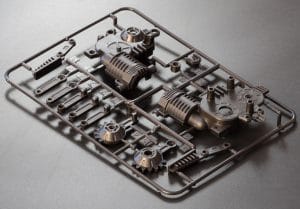 Companies in every industry can benefit from technologies and methods that allow them to achieve more, and with better results, while utilizing fewer resources. The realm of thermal management has been of particular interest in most industries for several different reasons, the most common of which involves the processes used to cool vital electrical enclosures. The more companies invest in and rely on more advanced technologies, the more electrical cooling plays a role in their overall operations. However, for companies in the plastic molding industry, specifically, thermal management and the ability to handle large amounts of heat continuously is vital to more than just their electrical cooling processes. It’s also a fundamental aspect of their efficiency and productivity, and the quality of the products they manufacture.
Companies in every industry can benefit from technologies and methods that allow them to achieve more, and with better results, while utilizing fewer resources. The realm of thermal management has been of particular interest in most industries for several different reasons, the most common of which involves the processes used to cool vital electrical enclosures. The more companies invest in and rely on more advanced technologies, the more electrical cooling plays a role in their overall operations. However, for companies in the plastic molding industry, specifically, thermal management and the ability to handle large amounts of heat continuously is vital to more than just their electrical cooling processes. It’s also a fundamental aspect of their efficiency and productivity, and the quality of the products they manufacture.
How thermal pins absorb and transfer heat
In most other industries, the need for effective electrical thermal management has been met increasingly more often with the help of modern heat exchangers. Designed to eliminate the threat of electrical overheating by continuously transferring electrical waste heat, they’ve helped companies significantly boost their ability to manage more advanced electrical thermal management needs. The more heat exchangers have been utilized, the more companies have learned to implement them for more unique applications. For example, thermal pins, which are specially designed heat exchangers that are made to be used in most forms of molding equipment, have helped companies in the plastic mold industry apply the same efficient cooling processes to their primary molding operations.
Using specialized heat exchangers for plastic mold cooling
For typical applications that involve cooling electrical enclosures, heat exchangers are designed to utilize an eco-friendly cooling fluid to absorb and transfer waste heat. This allows the heat exchanger to continuously prevent electrical overheating by preventing waste heat from ever accumulating. In some applications, heat exchangers can be specialized to transfer the heat somewhere it can be repurposed, such as for wastewater treatment or other essential processes. In plastic molding operations, specialized thermal pins are designed to utilize the same principles of transferring heat and apply them to removing heat from plastic molds.
The benefits of thermal pins to plastic molding companies
The ability to transfer heat has significant implications in the realm of electrical cooling. Heat exchangers have helped companies eliminate much of their reliance on solutions such as air conditioners and air compressors to keep electrical cabinets and other enclosures properly cooled. This has equated to substantial savings in energy and maintenance, as well as improved overall efficiency. By utilizing specialized thermal pins, companies have also significantly enhanced the efficiency of their core processes – cooling plastic molds – and the quality of their yields.
For more information about how thermal pins make plastic mold cooling more advanced, call Noren Thermal Solutions in Taylor, TX, at 866-936-6736.







